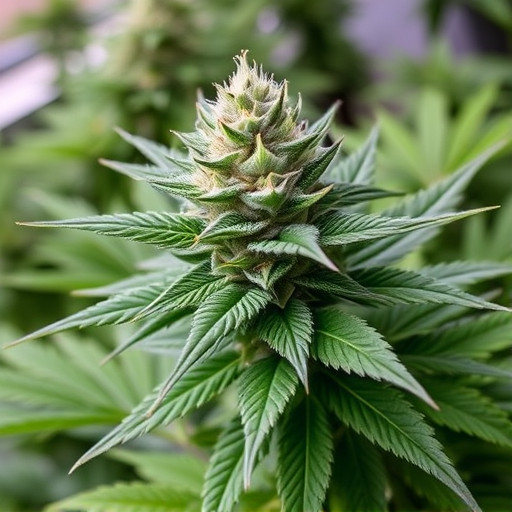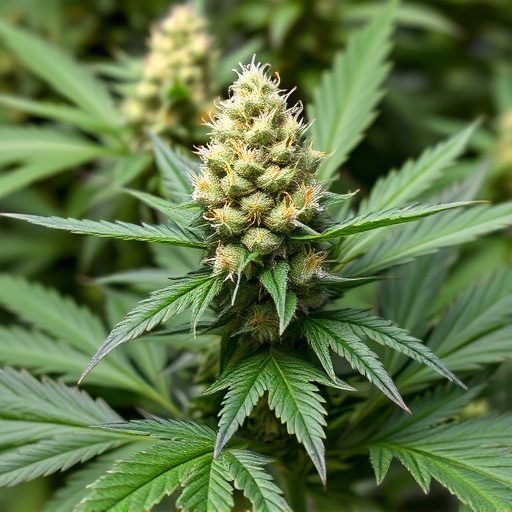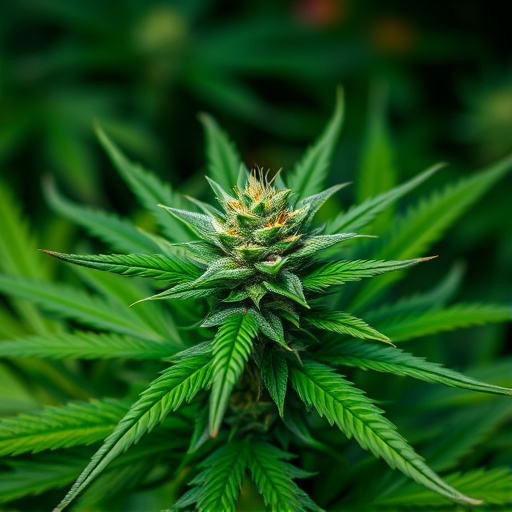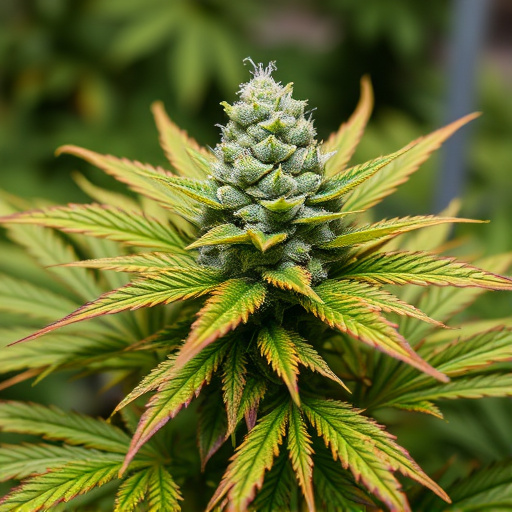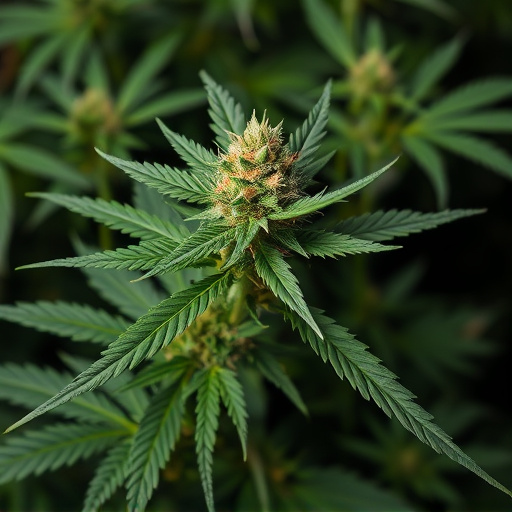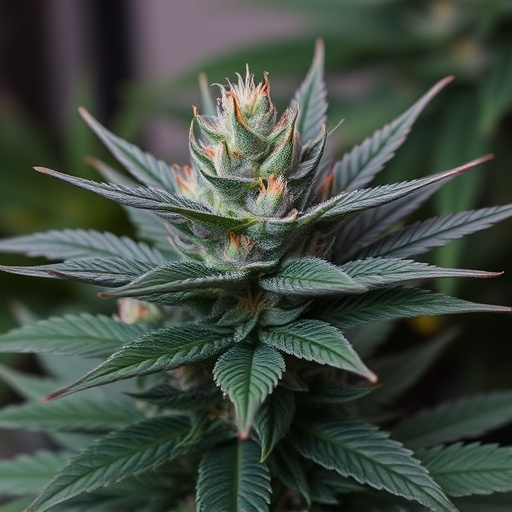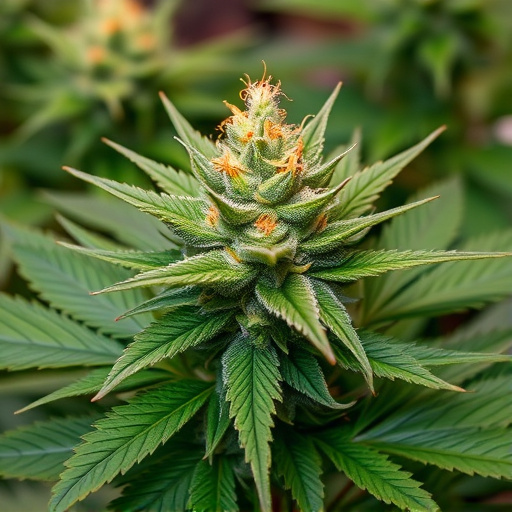Cannabis, particularly sativa strains, has gained attention for its potential to alleviate stress, anxiety, and depression due to high THC levels promoting euphoria, energy, and focus. Dosage, consumption method, and individual tolerance influence the effects on mood. Sativa's unique blend of cannabinoids and terpenes stimulates creativity and mental alertness, making it ideal for daytime use. Research highlights its promise in managing mood and stress, with studies exploring the interaction between THC, CBD, and the brain's endocannabinoid system. Lower CBD and lower THC sativa strains offer calmer alternatives for stress relief, especially accessible in regions with limited medical options.
Cannabis flower has been a subject of interest for its potential mood and stress-relieving effects. This article explores how cannabis interacts with our endocannabinoid system, focusing on the role of sativa cannabis strains in enhancing well-being. We delve into scientific insights and research that shed light on the mental health benefits associated with cannabis use. Understanding these impacts is crucial, especially as sativa strains gain popularity for their therapeutic properties.
- Understanding the Impact of Cannabis on Mood and Stress
- The Role of Sativa Cannabis Strains in Enhancing Well-being
- Scientific Insights: Research on Cannabis and Mental Health Benefits
Understanding the Impact of Cannabis on Mood and Stress
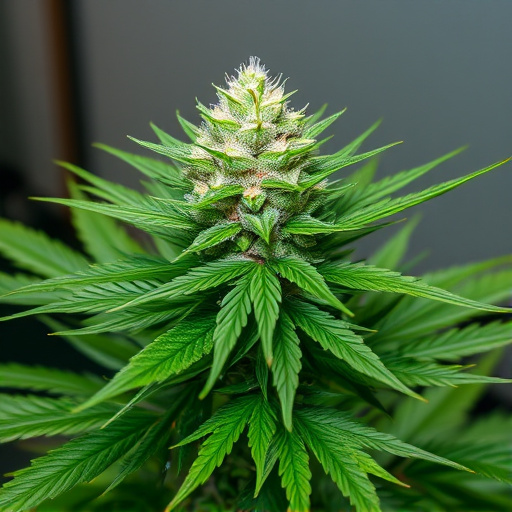
Cannabis has been used for centuries to manage various medical conditions, but its effect on mood and stress is a topic of growing interest. Research suggests that different strains of cannabis, particularly sativa cannabis strains, can have distinct impacts on an individual’s emotional state. Sativa varieties are known to often induce feelings of euphoria, energy, and focus due to their higher levels of THC (tetrahydrocannabinol), the primary psychoactive compound in cannabis. This can be beneficial for individuals seeking relief from stress, anxiety, or depression, as it may promote a positive outlook and enhance overall well-being.
The impact of cannabis on mood is multifaceted and influenced by various factors, including dosage, method of consumption, and individual tolerance. Sativa strains are generally considered more uplifting and stimulating compared to indica strains, which tend to have sedative effects. By understanding the specific effects of different cannabis strains, users can make informed choices to manage their stress levels effectively. Additionally, combining cannabis with mindfulness practices or therapy can offer a holistic approach to mood regulation, providing further support for those seeking alternative methods to navigate stress and anxiety.
The Role of Sativa Cannabis Strains in Enhancing Well-being
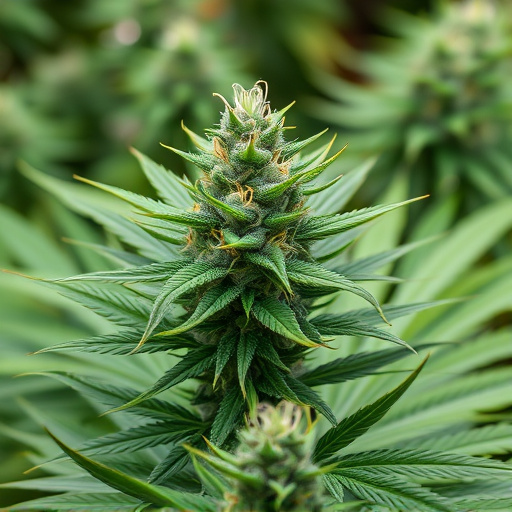
Sativa cannabis strains have long been celebrated for their potential to enhance well-being and boost mood. These varieties, known for their uplifting and energizing effects, often contain higher levels of THC (tetrahydrocannabinol), the primary psychoactive compound responsible for the plant’s psychological effects. The unique blend of cannabinoids and terpenes in sativa strains can contribute to a sense of relaxation without promoting sedatiness, making them popular choices for individuals seeking to alleviate stress and improve their overall mental state.
Many users report that sativa cannabis strains stimulate creativity, increase focus, and promote a positive outlook. They are often preferred during the daytime or when engaging in activities that require heightened alertness and mental clarity. The energizing effects of sativa can help combat fatigue, boost productivity, and foster a sense of optimism, making them valuable tools for managing stress-related disorders and promoting overall well-being.
Scientific Insights: Research on Cannabis and Mental Health Benefits

Research into the effects of cannabis on mood and stress has gained significant traction, offering valuable insights into how this plant can interact with our mental health. Scientific studies have explored the potential benefits of various cannabis strains, particularly sativa cannabis strains, in alleviating symptoms associated with anxiety and depression. These trials often involve examining the neurochemical interactions between cannabis compounds, such as THC (tetrahydrocannabinol) and CBD (cannabidiol), and the brain’s endocannabinoid system.
The findings suggest that specific sativa cannabis strains, known for their higher concentrations of CBD and lower levels of THC, may promote a sense of calm and well-being while minimizing potential psychoactive effects. This balance is crucial, as it allows users to experience the therapeutic benefits without feeling intensely relaxed or altered. As a result, many individuals turn to these natural remedies as an alternative approach to managing stress and improving their overall mood, especially in regions where traditional medical options are limited or not readily accessible.
In conclusion, cannabis flower’s impact on mood and stress reduction is a complex topic, with scientific research pointing towards the potential benefits of specific strains like sativa cannabis. While more studies are needed, the existing evidence suggests that certain cannabinoids present in cannabis may interact with the body’s endocannabinoid system to promote relaxation and improve overall well-being. Understanding the effects of different cannabis varieties, such as sativa strains known for their uplifting properties, can empower individuals to make informed choices regarding their mental health and stress management strategies.




